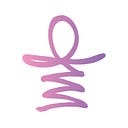Enneagram
I have recently been reading about Enneagram tests and personality types.
Enneagram can be seen as a set of nine distinct personality types, with each number on the Enneagram denoting one type. It is common to find a little of yourself in all nine of the types, although one of them should stand out as being closest to yourself. This is your basic personality type.
Points about the basic self type:
the basic type itself.
- People do not change from one basic personality type to another.
- The descriptions of the personality types are universal and apply equally to males and females, since no type is inherently masculine or feminine.
- Not everything in the description of your basic type will apply to you all the time because you fluctuate constantly among the healthy, average, and unhealthy traits that make up your personality type.
- The Enneagram uses numbers to designate each of the types because numbers are value neutral — they imply the whole range of attitudes and behaviors of each type without specifying anything either positive or negative. Unlike the labels used in psychiatry, numbers provide an unbiased, shorthand way of indicating a lot about a person without being pejorative.
- The numerical ranking of the types is not significant. A larger number is no better than a smaller number; it is not better to be a Nine than a Two because nine is a bigger number.
- No type is inherently better or worse than any other. While all the personality types have unique assets and liabilities, some types are often more desirable than others in any given culture or group. Furthermore, for one reason or another, you may not be happy being a particular type. You may feel that your type is “handicapped” in some way. As you learn more about all the types, you will see that just as each has unique capacities, each has different limitations. If some types are more esteemed in Western society than others, it is because of the qualities that society rewards, not because of any superior value of those types. The ideal is to become your best self, not to imitate the assets of another type.
The different types of personality are listed below:
The Enneagram with Riso-Hudson Type Names
These one-word descriptors can be expanded into four-word sets of traits. Keep in mind that these are merely highlights and do not represent the full spectrum of each type.
Type One is principled, purposeful, self-controlled, and perfectionistic.
Type Two is generous, demonstrative, people-pleasing, and possessive.
Type Three is adaptable, excelling, driven, and image-conscious.
Type Four is expressive, dramatic, self-absorbed, and temperamental.
Type Five is perceptive, innovative, secretive, and isolated.
Type Six is engaging, responsible, anxious, and suspicious.
Type Seven is spontaneous, versatile, acquisitive, and scattered.
Type Eight is self-confident, decisive, willful, and confrontational.
Type Nine is receptive, reassuring, complacent, and resigned.
You can do the test on many online sites to work out which personality type you are.
The Enneagram is a highly sophisticated system of nine personality profiles that are meant to help us know ourselves and others “as we/they are to themselves”. Each type profile serves as a customized road map for on-going personal growth consistent with categories of modern psychological typology.
Resources mainly from: http://www.enneagraminstitute.com/Tests_Battery.asp#FreeShortTests

